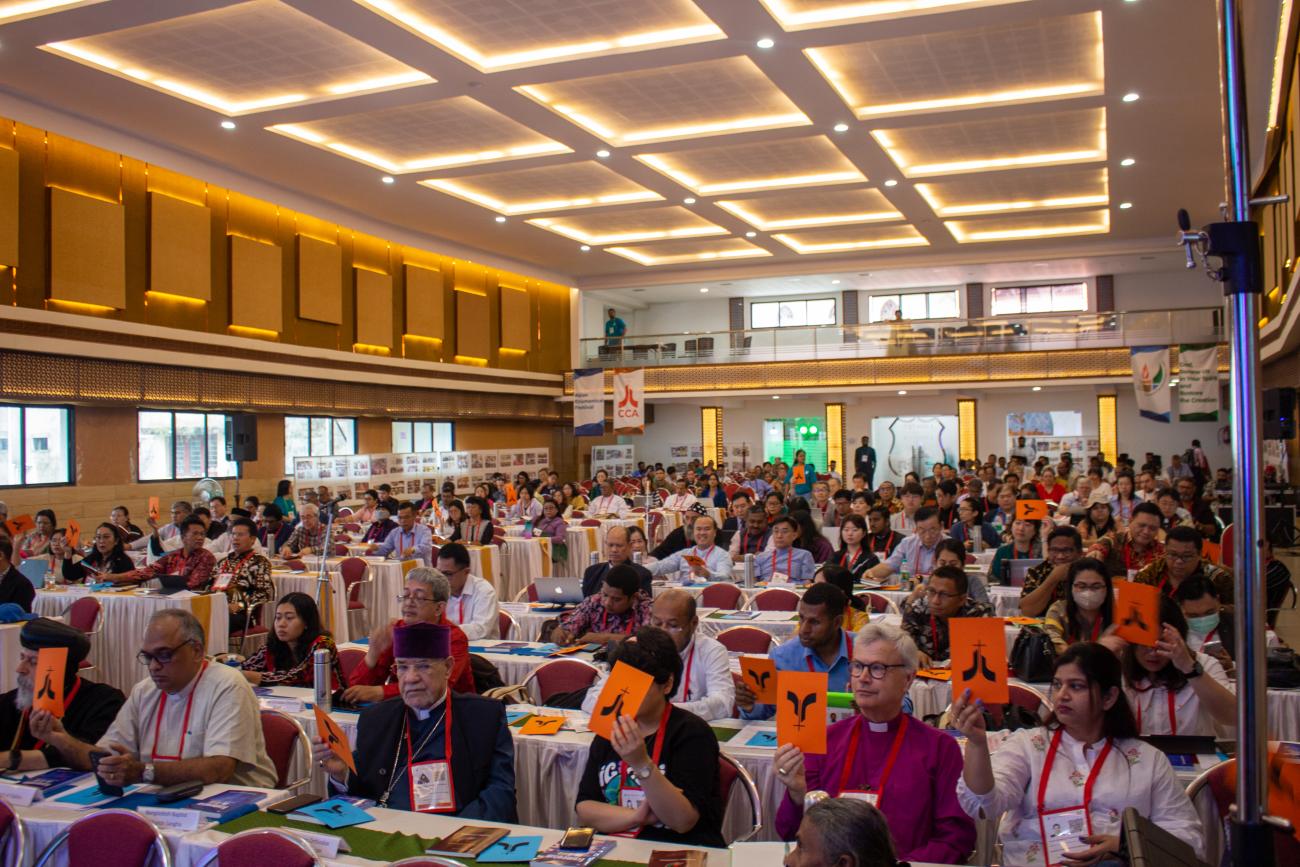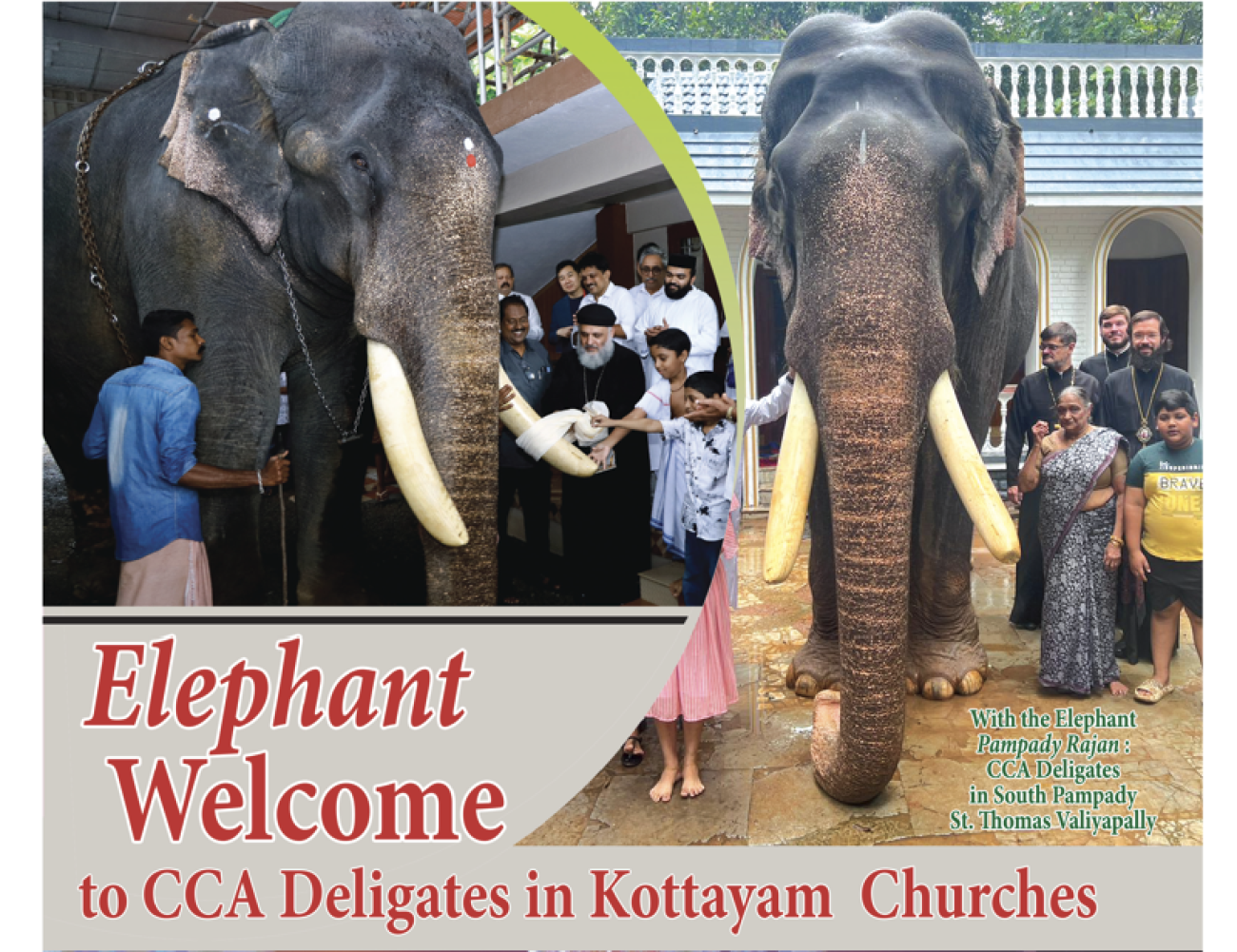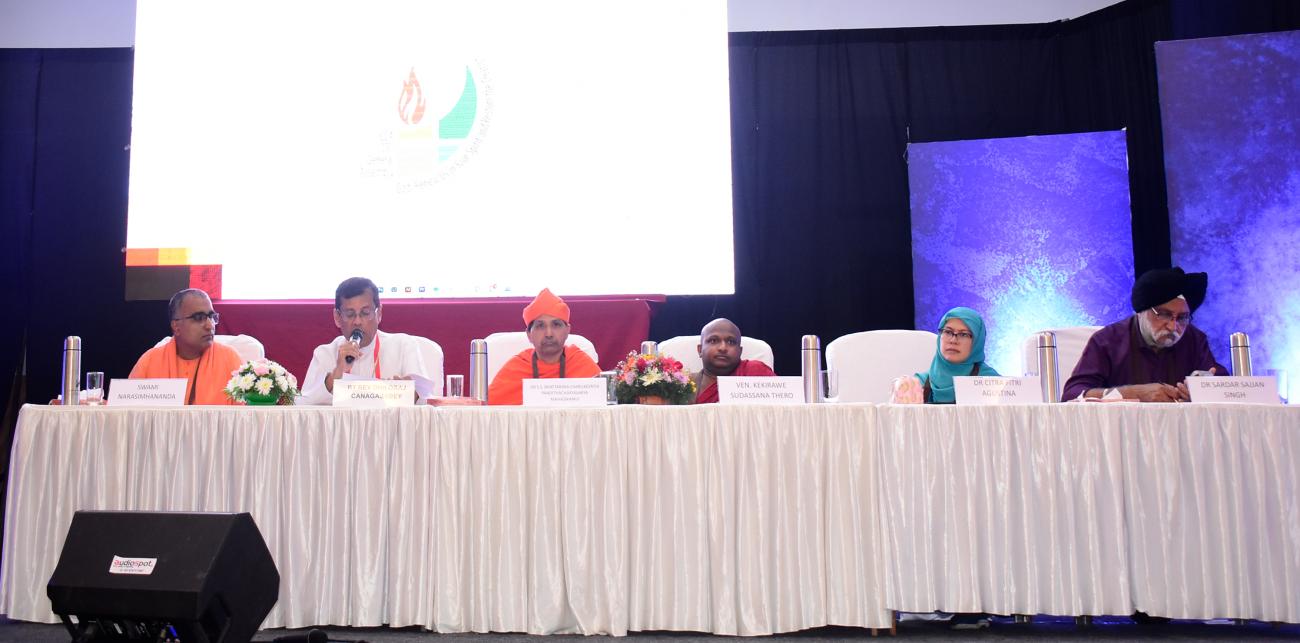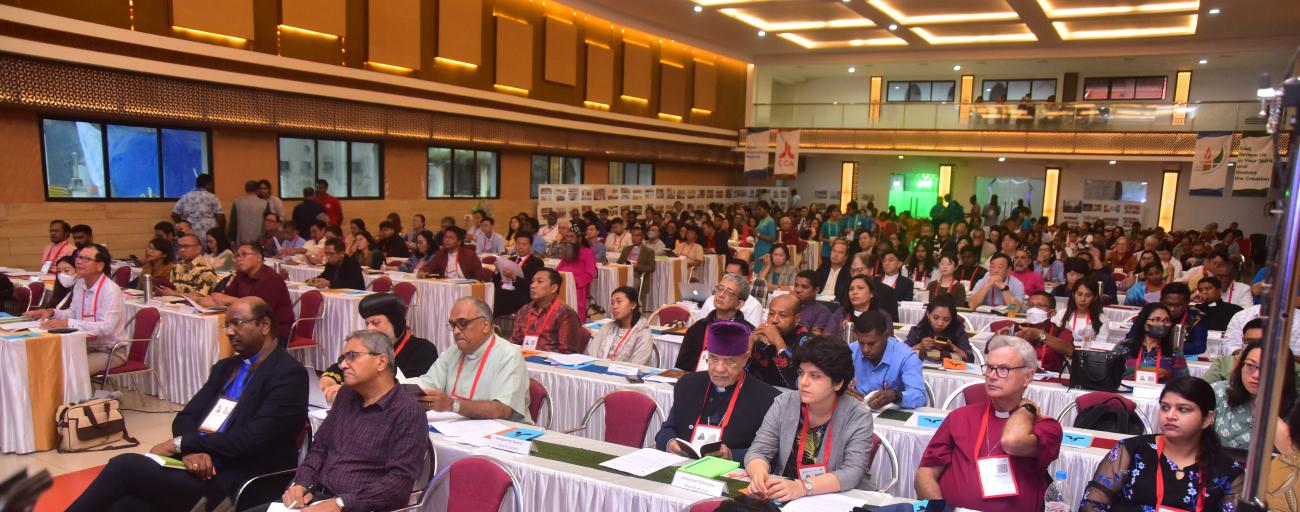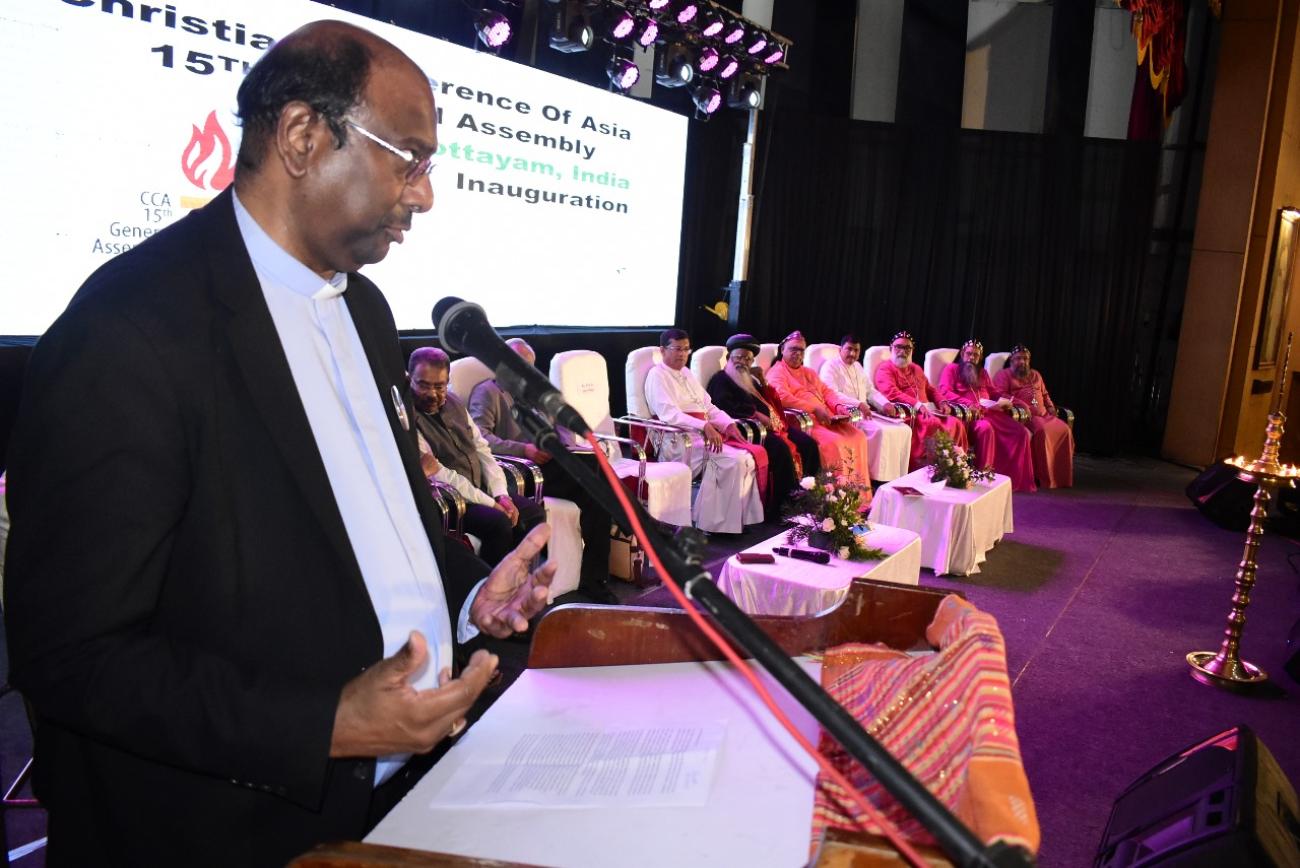Indigenous Women's Alternative Leadership for Transformation- Regional Follow up Training

Rationale for IWALT:
Indigenous, Dalits and ethnic minority women suffer from sexism, casteism, exclusion and marginalized all factors that undermine community and ultimately threaten life in itself. However even in the context of violence, exculsion Asian indigenous/dalit/ethnic minority Asian women have tremendous spiritualities, skills, knowledge and feminist tools of theologizing to transform society and build communities of peace. Hence there was need for scope of sharpening such skills.
1. Foster indigenous and Dalit women’s leadership development and networking in addressing theological and social issues from gender, race, class, caste, culture and religious perspective.
2. Support indigenous and Dalit women’s empowerment in their own communities.
INDIGENOUS AND DALIT WOMEN'S AFFIRMATION
We affirm the rights of all people:
To life and cultural expression
To education, health and employment
To prosperity and security
To participation in decision making and self government
‘We affirm the rights of people to chart their own destiny:
To be liberated from the triple burdens of gender, class and race
To participate in the creation of just, sustainable and peaceful society free from racial discrimination
IWALT: REGIONAL FOLLOW UP TRAINING PROGRAM
The Regional follow up training was organized in Chaing Doi, near Chaing Mai, Thailand from 4th -8th February 2008. 32 indigenous /dalit women participated in this program. Thirty-two indigenous/Dalit women participated in this training who did the follow up of IWLAT in local communities after their participation in IWALT Sub Regional Training.
MAIN AIM OF REGIONAL FOLLOW UP IWALT TRAINING
To bring together in celebration the results (or multiplying effect) of the follow-up activities of the women participants from the three sub-regional IWALT workshops.
1.To assess the attainment of objectives of the sub regional trainings through the sharing of the participants of their follow up activities.
2. To deepen and sharpen their understanding of feminist theologizing and reading of Bible through indigenous and Dalit women’s eyes.
3.To evaluate the applicability of alternative i.e. feminist leadership in their respective contexts.
4.To build a platform for action, solidarity and co-operation among indigenous/dalit women on building communities of peace.
Alternative Transformational Leadership:
Dr Anna May Say Pa, a renowned indigenous feminist theologian from Burma, gave the keynote address and led a Bible study on feminist leadership. “Women are more transformational leaders, use power from charisma, interpersonal skills, and hard work, rather than power from the organizational structure, and who lead by attempting to transform the self-interest of the worker to the larger interest of the group,” she said. “The transformational leaders serve as role models, help others to develop their skills, energize them and motivate them to be more creative,”
A Frame Work of Asian Femenist / Women's Theologizing Theologizing
Dr Hope Antone (Executive Secretary for CCA-FMU) facilitated the Asian feminist theologizing but critically locating it in the context of indigenous/Dalit women. In small groups, participants went through the steps of feminist theologizing by naming oppression, identifying agents of oppression, identifying dominant theology and ideology that reinforce oppression, doing feminist critique of religious texts and cultural practices, and planning transformative action.
Re- reading the Bible through Indegenous/dalit Women's Eyes
Indigenous/Dalit women have unique resources for theologizing – their folk stories, oral traditions and myths. Dr Limatula Longkumer an indigenous Naga feminist theologian part of IWALT said 'Folklore, oral traditions are indigenous people’s expression of faith, beliefs, struggles, sufferings, fears and hopes and has ethical value. Therefore, it is an inevitable tool to understand a society/community – its past, its traditions, culture and worldview and also to re-read the Bible.' She facilated the participants to share their myths and folk stories to use it as an hermenutics to re-read the Bible.
Towards Self-Reliance: Handful of Rice
The group discussed how they can continue promoting IWALT and multiply its effect. Ruth Raksham, a Garo from Bangladesh, and Langsanpui, a Mizo from India, shared how women keep a handful of rice every time they cook. Such handfuls of rice are later collected from every house and sold to raise funds for women’s training program. Such contribution of Asian indigenous women in kind cannot be compared with dollars or pounds but it reveals the power of Asian indigenous women to contribute to grassroots women’s ecumenical movement.
No More Sorrows in God’s Garden of Justice
Participants shared amazing stories of multiplying effect of IWALT in local communities. As a part of IWALT follow up in India the indigenous students in the seminary wanted IWALT to be a part of the college curriculum. A book named 'No More Sorrow in God’s Garden of Justice' was also published gaining inspiration form IWALT.
Need to Train Younger Generation Indigenous Women:
Rev Elizabeth Enjut from Malaysia- 'I want younger generation to involve in the IWALT in my local community. I have made efforts to train Long House community in Malaysia. Ecumenical Movement and Churces should commit to do so.'
Ecuemnical Formation Worshops for Indigenous/dalit Women:
Maureen BLoste: 'Especially there is need to train indigenous women to pen down their oral traditions, spiritualities and folk stories as resource to interpret the Bible, engage in advocacy and campaign in the process of liberation. Or else our stories, traditions and culture will be erased form the memory of our young people. We need more Ecumenical Formation and Writing Worksohps where young indigenous dalit women can be trained- they are our future'.
Training Dalit Women:
Moumita Biswas ( Executive Secreatry EGY, CCA ) 'The dalit women are missing in this Regional follow up training though some of them were trained in the sub regional follow up trainings. They are our missing sisters this time. They have not send us their follow up reports as the others. Their silence speaks. Our Dalit sisters need more ecouragement and nurturing and support from local Churches and their communities to carry out their follow up activities. '
WHERE TO GO FROM NOW
Since IWALT Project is ending its project cycles question was raised where to go from now. The participants strategized how that
1.There should be more capacity enhancement program for indegenous womenWriting and
2.Theologizing Workshops should be organized to help indegenous women to pen down their oral traditions and folk stories and use them as Asian indigenous dalit women's hermenutic to re-read the Bible.
3. Intoduce IWALT in theological seminary curriculum.
4. Organize Ecumenical formation of Gender Justice Schools for Alternative Leadership Development of indegenous women as well men and deconstruct patriarchal ideologies together to build incluisve communities of peace.


